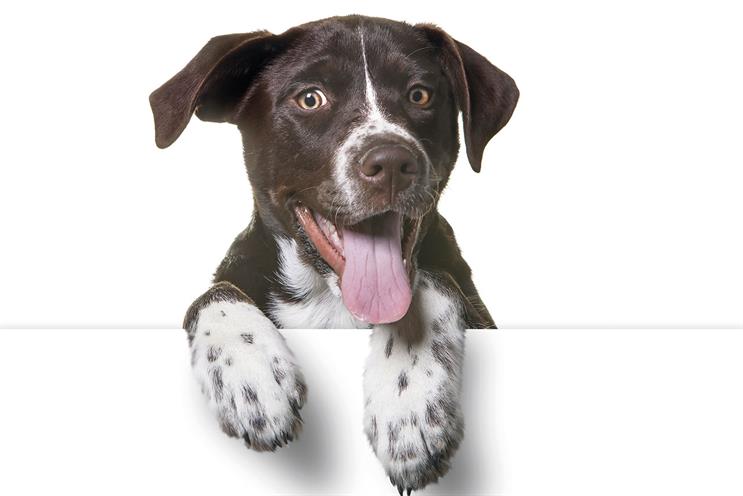I once took a puppy to a business meeting.
It was a really good meeting. For me and the puppy. And I think the clients too.
It broke the ice that coats every business meeting. As a young copywriter, I used to find myself trying to make a joke, play a film – anything – to recalibrate the atmosphere in the meeting before we talked about "the creative".
Puppies are the opposite of business. Puppies are natural, full of enthusiasm, bounding about, making mistakes, bumping into walls, picking themselves up. They’re dismissed as "sweet". But they’re transformative.
A bit like a creative.
And the opposite of a "business" person.
That’s how it used to be. There were business people and there were creative people. Business people were sensible and boring. Creative people were zany and irresponsible. I have often heard marketers talk about what we do as the "fluffy stuff" or the "pictures". Business and creativity were worlds apart.
Business needed creativity like tea needs a little sugar. So they hired advertising agencies. To inject a little puppy into things.
As we sail deeper into this century, we’ve seen a huge sea change in the role of creativity in business. The rise of the entrepreneur, the cult of the coder. And the deification of the designer, like Saint Jony Ive of Apple.
The most successful businesses of the past decade take creativity very seriously. They do not separate creativity and business. They understand that you need to stay restless to function in this accelerated world. To be curious, to look for new, to fail happily, to learn, to be humble and to be allowed to play.
The divisions between creativity and business are disappearing because of the rise of service brands. You can’t divide the product from the experience – the point of sale, the poster, the UX are all part of brand-building.
Richard Reed at Innocent knows that the witty words on its packaging are as important as the quality of the smoothie. The guys who run Pret a Manger care about the typography on their in-store posters – you just know, because it is so beautifully and consistently done. And the people at Uber understand how watching your cab make its way to you on screen transforms the experience of waiting for a cab.
What is creativity, anyway?
Creativity is ultimately about humanity. Because "creativity" in our world is really about framing a business’ offering relevantly to the customer – presenting it on their terms, enhancing and defining their perceptions.
And that way of thinking is as relevant when defining a customer proposition as when designing an ad. Creativity is not a skill, it’s an attitude. And it’s an attitude that should be part of business thinking – at all levels.
Our business, I think, should be helping businesses to be creative as much as creating for them. We should bring our process to them as much as the ideas.
Creativity starts when we open our hearts. And that’s why it’s hard. A creative team in an ad agency have more rejections in a week than most people do in a year. They, like puppies, come bounding in, tails wagging, get bounced back, and do it again. It’s tough, but everyone understands that’s the game. And, boy, do you learn fast. It’s like having a weekly performance review.
It’s a very different way of working than most businesses. Number one, you have to overcome the biggest barrier: the fear of looking stupid. It’s like FOMO but worse. Often, company cultures mitigate against this way of being, through departmental divisions or job hierarchy. A huge part of creative thinking is about making connections, so you’re dead in the water if there are things in the way. People from different disciplines often talk a different language, so you need to make it OK to grope your way through the misunderstandings and let everyone to find their feet. It’s about overcoming the inadequacies we feel as humans.
At our agency, we find that bringing people together – within client companies, as well as with us – is as much part of the creative process as the execution. It’s all about creating a climate in which people feel safe, to ask dumb questions, to share opinions, to come up with crap ideas. It also allows for the possibility that the solution may be something other than a traditional advertising execution.
Ultimately, I’m talking about helping businesses to let creativity in and to allow us to help in a broader, deeper way. To help invent propositions, even products, to crystallise the brand’s purpose, to help them find simplicity and to be human.
To be creative, to stay restless. Like a puppy.
John Townshend is the founder of Now


